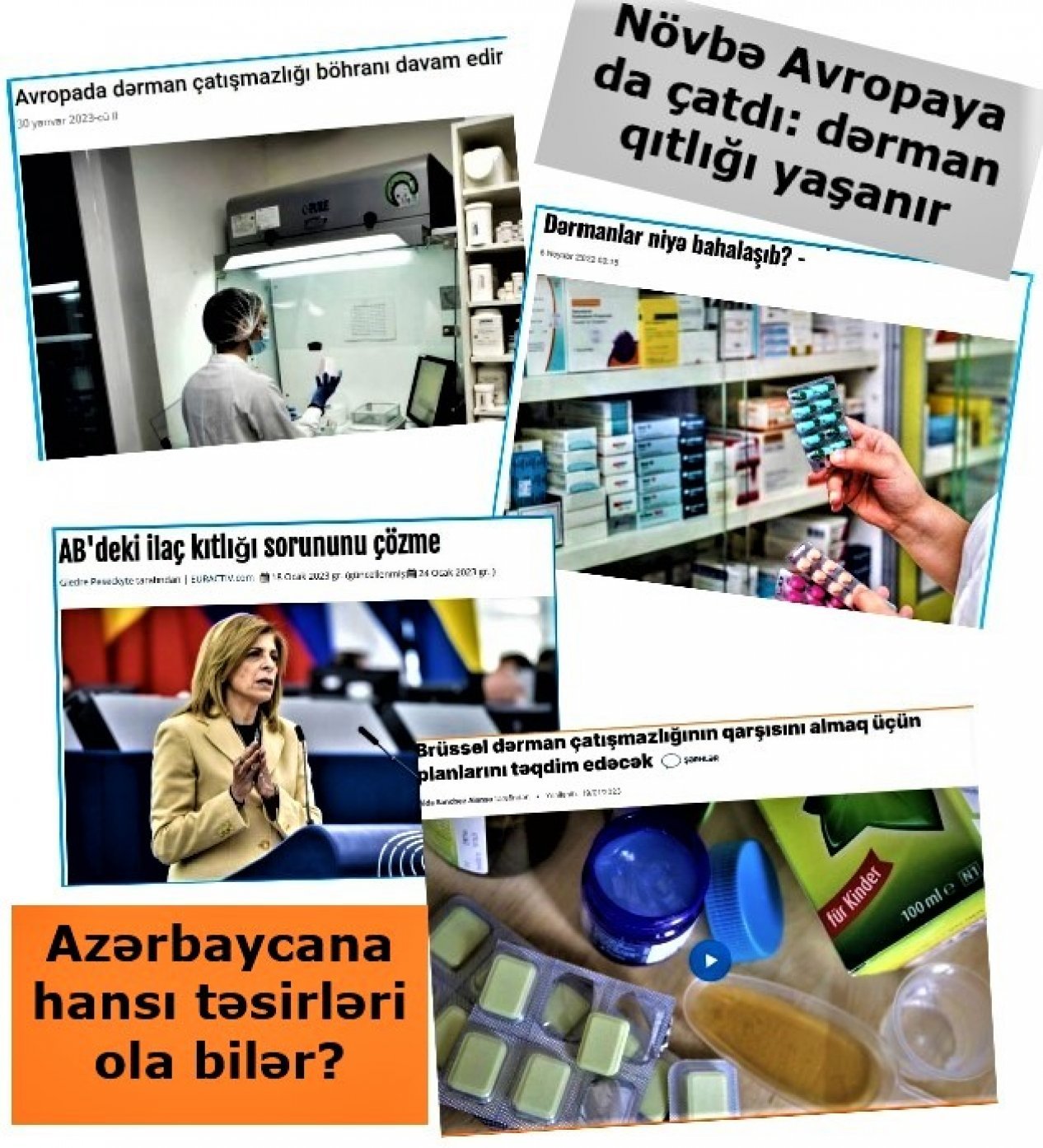
Recently, severe drug shortages have been observed in European countries. The lack of medicine, which started at the end of last year, has deepened in the last few weeks. According to reports in the international media, there is a shortage of medicines and antibiotics for respiratory, allergic and infectious diseases in the European markets.
Belgian authorities report a shortage of about 300 drugs in pharmacies, Germany is experiencing a shortage of 408 drugs, and Austria is experiencing a shortage of more than 600 drugs. In general, according to the results of a study conducted in many pharmacies in the countries of the European Union, there was a shortage of more than 600 types of drugs, which means a quarter of the total number of drugs. source
Pharmacies in the UK and France are running out of essential antibiotics, strep and other throat medicines, and medicines needed to ward off winter infections are about to run out.
The Association of Independent Multiple Pharmacies in Britain has called the shortage of amoxicillin and other antibiotics "very worrying" when the country is experiencing scarlet fever and a serious Strep A outbreak that has already killed nine children. Health experts are also warning of potential shortages in Italy, Canada and the United States. source
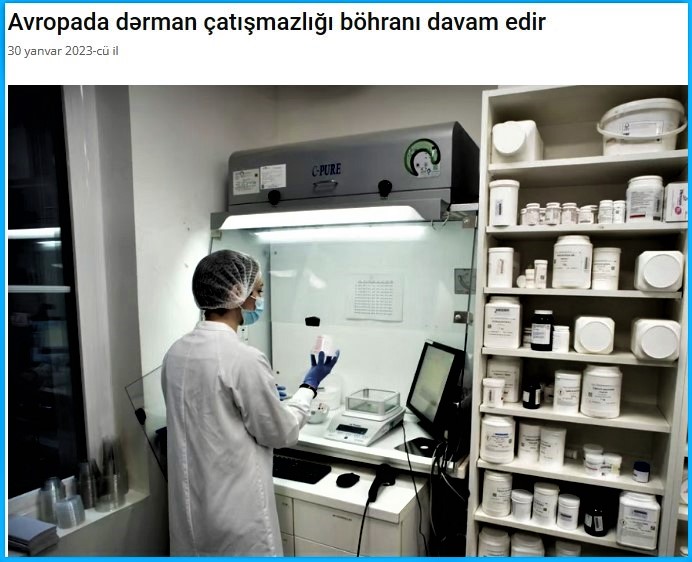
The complexity of the situation has seriously worried the European Commission. Speaking at the plenary session of the European Parliament a few days ago, Stella Kiriakides, EU Commissioner for Health Affairs, said that access to paracetamol, antibiotics and other medicines in the EU is becoming increasingly difficult, and there is a serious shortage of medicines. In particular, in recent months, there has been a shortage of amoxicillin and other antibiotics, which are used to treat a number of bacterial infections, and anti-infectious drugs required for the treatment of children.
Italian MEP Laura Ferrara said that Italy could not meet the current demand for 3,000 pharmaceutical products. In some EU countries, Bulgaria, Greece, Slovenia and others, hundreds of medicines disappear from pharmacies.
But what is the cause of drug shortages?
The EU Health Commissioner pointed out the unexpected sharp increase in the demand for drugs against infectious respiratory diseases during the COVID-19 pandemic, as well as in the last two years, as one of the main reasons for the drug shortage. Also, in the first phase of the post-pandemic period, the increase in the number of various diseases also increased the need for many medicines, and the European pharmaceutical industry faced difficulties in meeting the demand. Also, one of the reasons for the lack of medical preparations is insufficient production capacity, that is, its decrease. The ongoing war in Ukraine, the energy crisis, high inflation, as well as some geopolitical events are among the factors listed among the reasons. Other factors that negatively impact the pharmaceutical industry are production delays and interruptions, shortage of raw materials, and supply-distribution problems. Besides, the occurrence of natural disasters in some regions also causes problems.
In addition, difficulties in delivering packaging materials such as glass and cardboard also play a role in drug shortages in Europe.
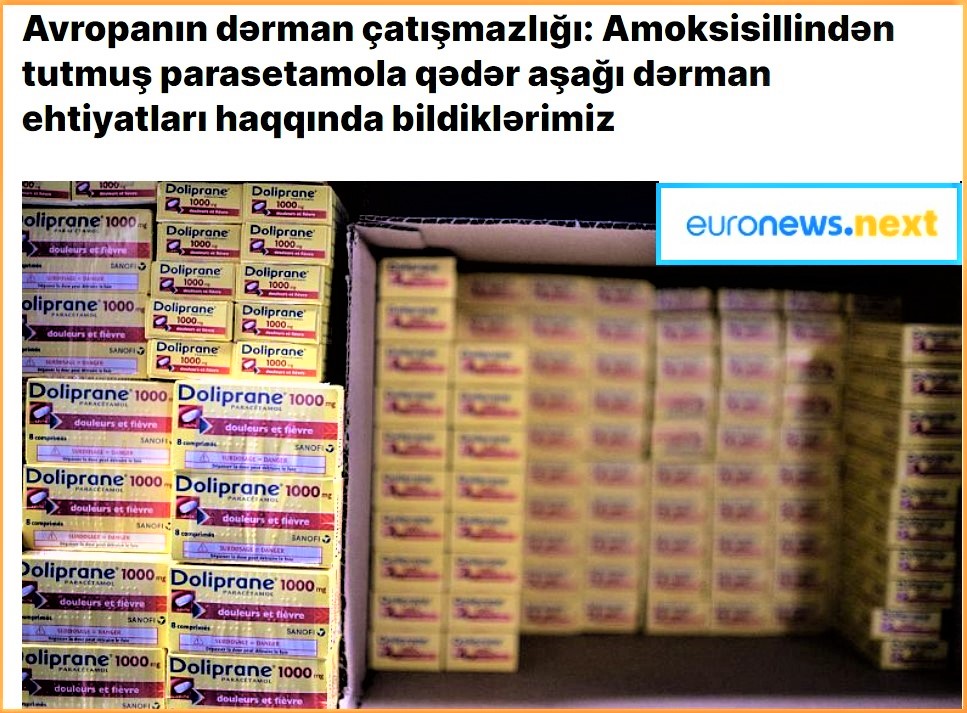
One of the difficulties in producing medicines is related to the fact that 90 percent of the components needed are imported from India and China, which creates supply risks in those countries. After China lifted all restrictions related to COVID-19, active ingredient companies cut exports to meet local demand as demand for drugs skyrocketed due to the resurgence of the disease.
Drug production also requires a lot of energy. Elisabet Stampa, CEO of Medichem SA, a Spanish manufacturer of generic drugs and pharmaceutical ingredients, did not exclude the suspension of production of several products due to the direct and indirect impact of rising energy costs. Marcello Cattani, the president of the Italian pharmaceutical industry association, said that energy costs had increased seven times compared to last year, the exchange rate of the US dollar used to pay for the ingredients went up compared to the euro, and these factors have a heavy impact on the pharmaceutical industry.

What do they see as a way out?
European experts say it is impossible to solve the problem in one day and eliminate the shortage of medicines. It will take at least 3-4 years. Rex Clements, CEO of the Dutch company Centrient Pharmaceuticals, admitted that there is a decline in European production and that there is currently no spare capacity to meet the shortfall. Global suppliers such as British GSK, American Viatris, Indian Aurobindo, and French Servier consider it essential to develop a new strategic plan for production and supply.
Ilaria Passarani, Secretary General of the EU Pharmaceutical Group, called on major drug manufacturers to diversify. source
Thus, considering the current concerns, the European Commission intends to amend the pharmaceutical law in March, considering large pharmaceutical companies' proposals. Changes are related to bidding and pricing systems. Thus, drug prices are expected to be indexed according to inflation and rising energy costs.
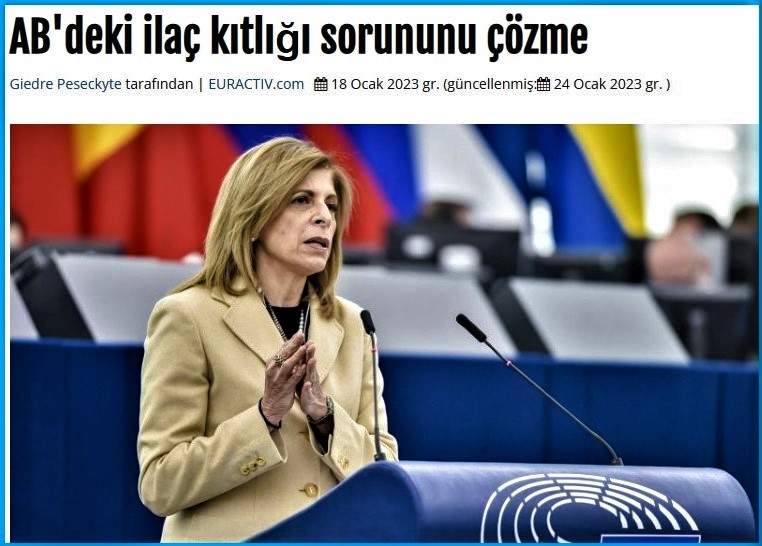
As one of the ways out of the situation, the EU Health Commissioner has recommended that medical hygiene be further strengthened and that people use masks and other protective equipment to avoid contracting infectious diseases.
Quote: "The European Union warns member countries that special attention should be paid to vaccination and the widespread use of hygiene products, as well as the use of masks. In order to prevent the increase of viral infections, the use of protective equipment should be a priority, like during a pandemic." source
How can this situation affect Azerbaijan?
The pharmaceutical industry in Azerbaijan has not yet been formed, and most drugs are imported. In 2022, 26,800 tons of pharmaceutical products were imported to Azerbaijan, which means $652.936 million in monetary terms. (Source: Customs Statistics of Foreign Trade of the Republic of Azerbaijan. 2022. Page 22).
Azerbaijan imports medicines mainly from Turkiye, Russia, Germany, India, France, China, Switzerland, Italy, Ukraine, Australia, and Poland. reference
Among the countries mentioned above, Germany, France, Switzerland, Italy, and Ukraine are experiencing drug shortages. This means that the current situation in those countries and the tariff adjustment expected in March may affect the prices in the domestic markets of Azerbaijan in the coming months. Last year, after the price increases of a number of medicines in Russia, Ukraine and other countries, the prices hiked in Azerbaijani pharmacies too.
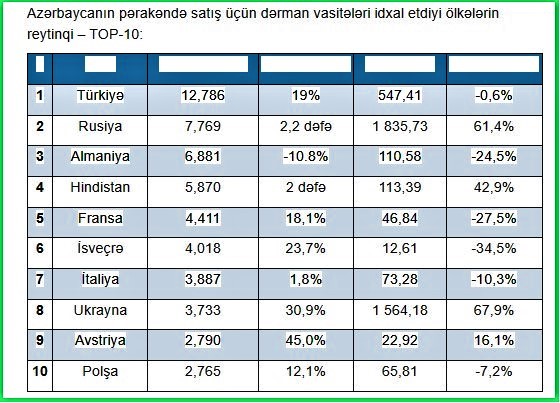
The point is that medicines are not cheap in Azerbaijan. Therefore, in order to prevent price increases again, the Tariff Council should find a way out with companies engaged in importing drugs and pharmaceutical corporations.
Rashad Mahmudov, a member of the Health Committee of the Azerbaijani Parliament, has proposed the creation of a particular institution to solve price problems. He said that this agency should control all the processes, from obtaining the certificates of medicines to regulating their prices.
Member of Azerbaijani Parliament Ahliman Amiraslanov also proposed the establishment of a special working mechanism to resolve the situation by conducting joint consultations with the participation of representatives of importing companies and pharmacies and members of institutions dealing with this field in order to solve the problems related to the price, quality and availability of medicinal products.




















